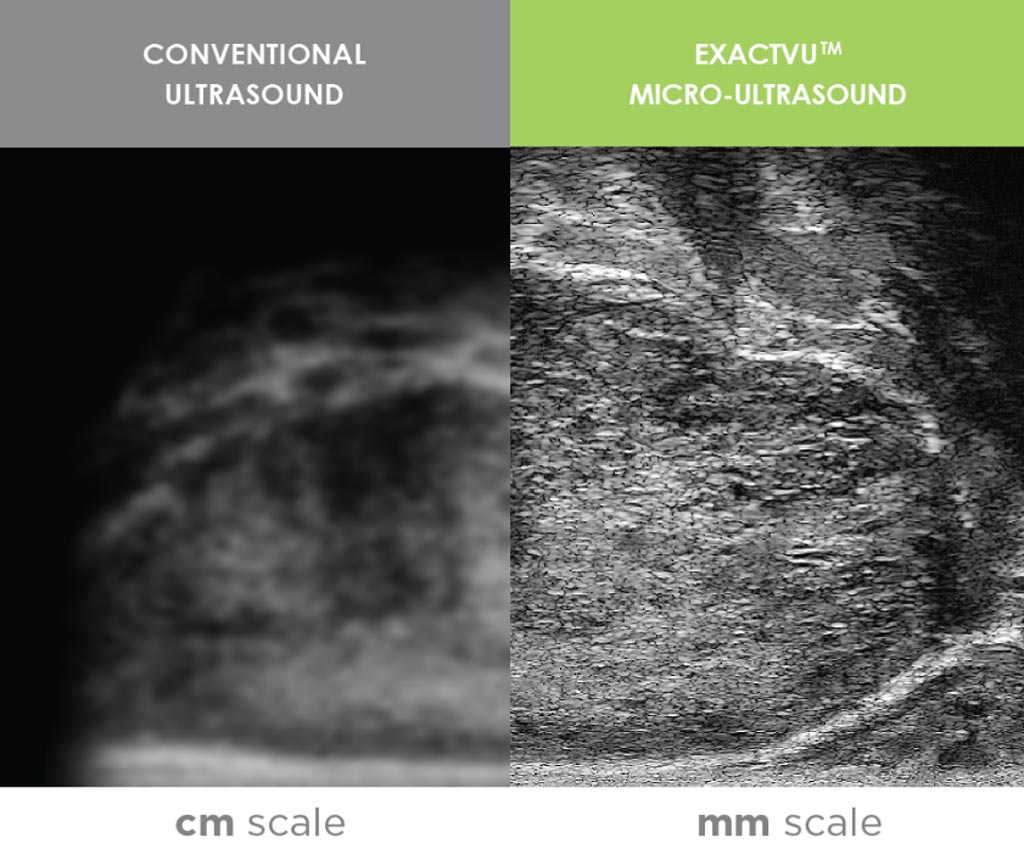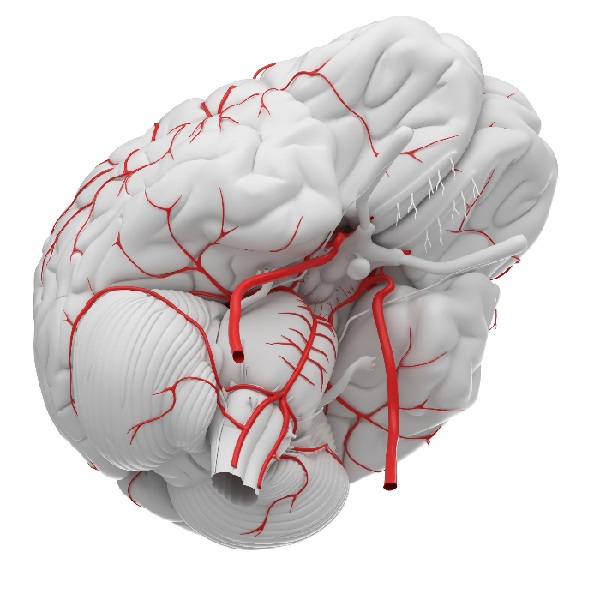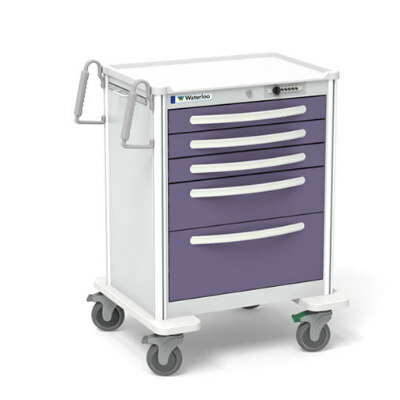AI Applied to Micro-Ultrasound Could Speed Cancer Detection
|
By HospiMedica International staff writers Posted on 24 Sep 2018 |

Image: A new advanced ultrasound imaging technique is being combined with artificial intelligence to improve the detection of prostate cancer (Photo courtesy of Exact Imaging).
Cambridge Consultants (Cambridge, UK) and Exact Imaging (Markham, ON, USA) are working together to improve the way prostate cancer is visualized and detected by applying deep learning to high-resolution micro-ultrasound imaging. This can help identify potential suspicious regions of tissue and inform urologists who may want to consider this additional data in their biopsy protocol. The early results of their work have been promising.
Exact Imaging develops high-resolution micro-ultrasound systems enabling real-time imaging and guided biopsies in the urological market for prostate cancer. It is the maker of the ExactVu micro-ultrasound platform, an imaging tool which allows urologists to harness “micro”-ultrasound’s near microscopic resolution in order to visualize suspicious regions and actually target their biopsies to those regions.
Cambridge Consultants is at the forefront of advances in machine learning and deep learning, applying this transformative technology to a wide range of industries and disciplines. The current work on prostate cancer is the latest output from Cambridge Consultants’ Digital Greenhouse, a unique experimental environment where data scientists and engineers explore and develop cutting edge machine learning and deep learning techniques and which aims to ensure that deep learning is potent beyond the huge online datasets that have powered advances to date. Recent work has focused on applying deep learning in areas where massive datasets are unavailable. In the case of its work on prostate cancer, data was available for hundreds of patients.
With Cambridge Consultants’ AI tools being able to interrogate the full ultrasound data set when correlated to pathology, the analysis is expected to deliver improved accuracy and better characterization of suspicious regions. The machine learning approach being applied is faster and less computationally intensive than traditional statistical approaches and could ultimately form the backbone of a commercially viable software application. Early results from proof of concept testing show significant promise, even with relatively limited data sets.
“The need for effective management of prostate cancer is as pressing as ever,” said Shweta Gupta, Head of Urology and Women’s Health at Cambridge Consultants. “We are proud to have the opportunity to try and improve the detection pathway and excited by the opportunity to apply deep learning to this significant clinical problem.”
Related Links:
Cambridge Consultants
Exact Imaging
Exact Imaging develops high-resolution micro-ultrasound systems enabling real-time imaging and guided biopsies in the urological market for prostate cancer. It is the maker of the ExactVu micro-ultrasound platform, an imaging tool which allows urologists to harness “micro”-ultrasound’s near microscopic resolution in order to visualize suspicious regions and actually target their biopsies to those regions.
Cambridge Consultants is at the forefront of advances in machine learning and deep learning, applying this transformative technology to a wide range of industries and disciplines. The current work on prostate cancer is the latest output from Cambridge Consultants’ Digital Greenhouse, a unique experimental environment where data scientists and engineers explore and develop cutting edge machine learning and deep learning techniques and which aims to ensure that deep learning is potent beyond the huge online datasets that have powered advances to date. Recent work has focused on applying deep learning in areas where massive datasets are unavailable. In the case of its work on prostate cancer, data was available for hundreds of patients.
With Cambridge Consultants’ AI tools being able to interrogate the full ultrasound data set when correlated to pathology, the analysis is expected to deliver improved accuracy and better characterization of suspicious regions. The machine learning approach being applied is faster and less computationally intensive than traditional statistical approaches and could ultimately form the backbone of a commercially viable software application. Early results from proof of concept testing show significant promise, even with relatively limited data sets.
“The need for effective management of prostate cancer is as pressing as ever,” said Shweta Gupta, Head of Urology and Women’s Health at Cambridge Consultants. “We are proud to have the opportunity to try and improve the detection pathway and excited by the opportunity to apply deep learning to this significant clinical problem.”
Related Links:
Cambridge Consultants
Exact Imaging
Channels
Artificial Intelligence
view channel
AI-Powered Algorithm to Revolutionize Detection of Atrial Fibrillation
Atrial fibrillation (AFib), a condition characterized by an irregular and often rapid heart rate, is linked to increased risks of stroke and heart failure. This is because the irregular heartbeat in AFib... Read more
AI Diagnostic Tool Accurately Detects Valvular Disorders Often Missed by Doctors
Doctors generally use stethoscopes to listen for the characteristic lub-dub sounds made by heart valves opening and closing. They also listen for less prominent sounds that indicate problems with these valves.... Read moreCritical Care
view channel
Revascularization Improves Life Quality in Chronic Limb-Threatening Ischemia, Finds Study
Researchers have undertaken a detailed study to evaluate the effects of revascularization strategies on the health-related quality of life (HRQoL) of patients with chronic limb-threatening ischemia.... Read more
Powerful AI Risk Assessment Tool Predicts Outcomes in Heart Failure Patients
Heart failure is a serious condition where the heart cannot pump sufficient blood to meet the body's needs, leading to symptoms like fatigue, weakness, and swelling in the legs and feet, and it can ultimately... Read more
Peptide-Based Hydrogels Repair Damaged Organs and Tissues On-The-Spot
Scientists have ingeniously combined biomedical expertise with nature-inspired engineering to develop a jelly-like material that holds significant promise for immediate repairs to a wide variety of damaged... Read more
One-Hour Endoscopic Procedure Could Eliminate Need for Insulin for Type 2 Diabetes
Over 37 million Americans are diagnosed with diabetes, and more than 90% of these cases are Type 2 diabetes. This form of diabetes is most commonly seen in individuals over 45, though an increasing number... Read moreSurgical Techniques
view channel
Miniaturized Snake-Like Probe Images Cerebral Arteries From Within
Endovascular interventions are being increasingly favored for treating strokes and cerebral artery diseases, but rely heavily on angiographical imaging that often struggles with limited contrast and spatial... Read more
Miniaturized Implantable Multi-Sensors Device to Monitor Vessels Health
Researchers have embarked on a project to develop a multi-sensing device that can be implanted into blood vessels like peripheral veins or arteries to monitor a range of bodily parameters and overall health status.... Read more
Tiny Robots Made Out Of Carbon Could Conduct Colonoscopy, Pelvic Exam or Blood Test
Researchers at the University of Alberta (Edmonton, AB, Canada) are developing cutting-edge robots so tiny that they are invisible to the naked eye but are capable of traveling through the human body to... Read more
Miniaturized Ultrasonic Scalpel Enables Faster and Safer Robotic-Assisted Surgery
Robot-assisted surgery (RAS) has gained significant popularity in recent years and is now extensively used across various surgical fields such as urology, gynecology, and cardiology. These surgeries, performed... Read morePatient Care
view channelFirst-Of-Its-Kind Portable Germicidal Light Technology Disinfects High-Touch Clinical Surfaces in Seconds
Reducing healthcare-acquired infections (HAIs) remains a pressing issue within global healthcare systems. In the United States alone, 1.7 million patients contract HAIs annually, leading to approximately... Read more
Surgical Capacity Optimization Solution Helps Hospitals Boost OR Utilization
An innovative solution has the capability to transform surgical capacity utilization by targeting the root cause of surgical block time inefficiencies. Fujitsu Limited’s (Tokyo, Japan) Surgical Capacity... Read more
Game-Changing Innovation in Surgical Instrument Sterilization Significantly Improves OR Throughput
A groundbreaking innovation enables hospitals to significantly improve instrument processing time and throughput in operating rooms (ORs) and sterile processing departments. Turbett Surgical, Inc.... Read moreHealth IT
view channel
Machine Learning Model Improves Mortality Risk Prediction for Cardiac Surgery Patients
Machine learning algorithms have been deployed to create predictive models in various medical fields, with some demonstrating improved outcomes compared to their standard-of-care counterparts.... Read more
Strategic Collaboration to Develop and Integrate Generative AI into Healthcare
Top industry experts have underscored the immediate requirement for healthcare systems and hospitals to respond to severe cost and margin pressures. Close to half of U.S. hospitals ended 2022 in the red... Read more
AI-Enabled Operating Rooms Solution Helps Hospitals Maximize Utilization and Unlock Capacity
For healthcare organizations, optimizing operating room (OR) utilization during prime time hours is a complex challenge. Surgeons and clinics face difficulties in finding available slots for booking cases,... Read more
AI Predicts Pancreatic Cancer Three Years before Diagnosis from Patients’ Medical Records
Screening for common cancers like breast, cervix, and prostate cancer relies on relatively simple and highly effective techniques, such as mammograms, Pap smears, and blood tests. These methods have revolutionized... Read morePoint of Care
view channel
Critical Bleeding Management System to Help Hospitals Further Standardize Viscoelastic Testing
Surgical procedures are often accompanied by significant blood loss and the subsequent high likelihood of the need for allogeneic blood transfusions. These transfusions, while critical, are linked to various... Read more
Point of Care HIV Test Enables Early Infection Diagnosis for Infants
Early diagnosis and initiation of treatment are crucial for the survival of infants infected with HIV (human immunodeficiency virus). Without treatment, approximately 50% of infants who acquire HIV during... Read more
Whole Blood Rapid Test Aids Assessment of Concussion at Patient's Bedside
In the United States annually, approximately five million individuals seek emergency department care for traumatic brain injuries (TBIs), yet over half of those suspecting a concussion may never get it checked.... Read more
New Generation Glucose Hospital Meter System Ensures Accurate, Interference-Free and Safe Use
A new generation glucose hospital meter system now comes with several features that make hospital glucose testing easier and more secure while continuing to offer accuracy, freedom from interference, and... Read moreBusiness
view channel
Johnson & Johnson Acquires Cardiovascular Medical Device Company Shockwave Medical
Johnson & Johnson (New Brunswick, N.J., USA) and Shockwave Medical (Santa Clara, CA, USA) have entered into a definitive agreement under which Johnson & Johnson will acquire all of Shockwave’s... Read more














